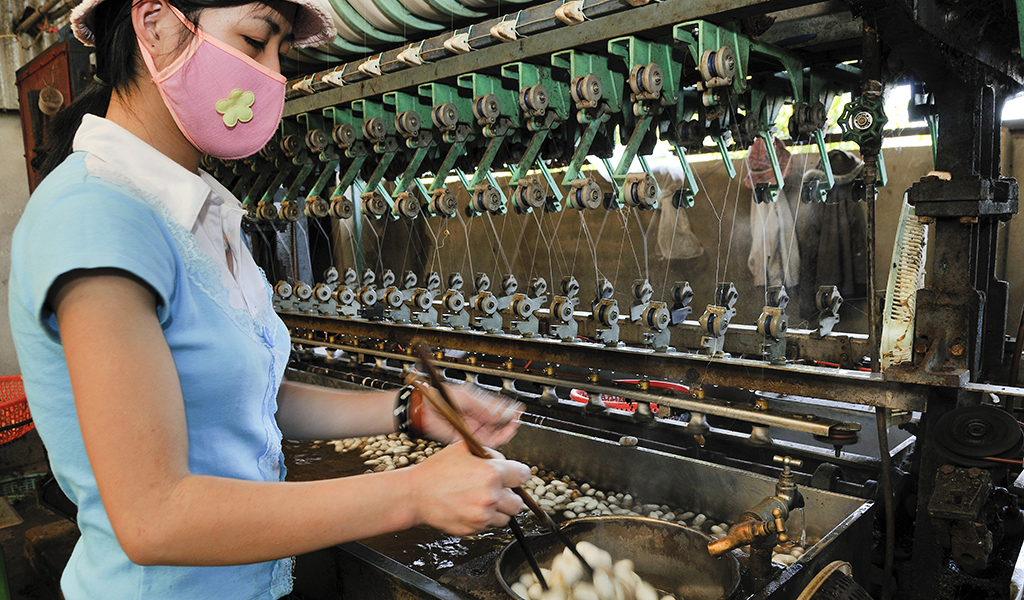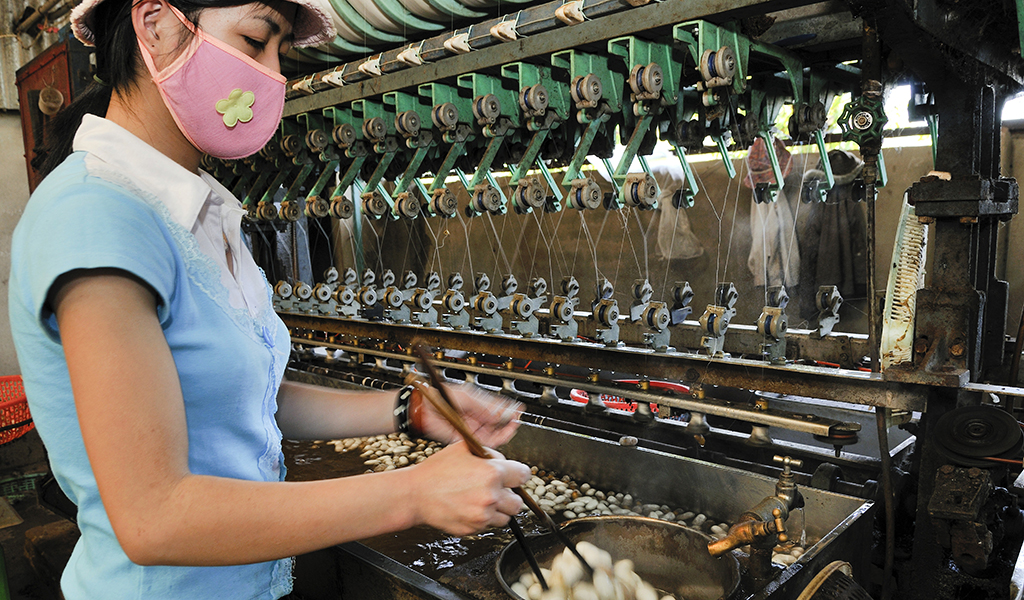July 17, 2017
[caption id="attachment_20623" align="alignnone" width="1024"] A worker in a silk factory in Dalat, Vietnam. Encouraging more women to join the workforce and shifting to higher productivity occupations will help the country overcome the impact of an aging population (photo: Gerhard Zwerger-Schoner/imageBroker/Newscom)[/caption]
A worker in a silk factory in Dalat, Vietnam. Encouraging more women to join the workforce and shifting to higher productivity occupations will help the country overcome the impact of an aging population (photo: Gerhard Zwerger-Schoner/imageBroker/Newscom)[/caption]
Vietnam’s demographic dividend is fast turning into a handicap.
For decades, working-age Vietnamese made up an expanding share of the population, boosting economic growth and helping to keep retirement and health spending in check.
That changed in 2013. While the southeast Asian nation’s population of 92 million is still relatively young (the median age is 26), it is graying quickly. Birth rates are falling, and life expectancy is rising. This phenomenon is by no means unique to Vietnam. The problem is that it’s happening much faster there, and at a much earlier stage of development.
In other words, as the Chart of the Week shows, Vietnam is at risk of growing old before it grows rich. And it will have less time to adapt to the challenges of an older society than many advanced economies had.
What are the implications for Vietnam’s economy? The decline in the share of working age people will probably be a drag on per capita growth between 2020 and 2050. Because so many Vietnamese workers are engaged in physically taxing occupations like farming or forestry (as opposed to law or medicine) overall labor productivity is likely to decline. An aging population also means more spending on pensions and health care and less tax revenue from workers, putting a strain on the state budget.
Because Vietnam is peaking so early, demographically speaking, it needs to move fast to adopt policies to boost productivity and growth and limit the budget burden. Here are some steps it could take, as outlined in a recent IMF staff paper titled Vietnam: Selected Issues published on July 5 in conjunction with the Fund’s annual assessment of the country’s economy:
- Increase participation in the workforce among women and older workers, and encourage the movement of people into higher-productivity occupations (currently, 40 percent of workers are employed on farms)
- Raise the retirement age (currently 60 for men and 55 for women), reduce incentives for early retirement and align indexation of benefits more closely with inflation.
- End preferential access to capital and land enjoyed by state-owned enterprises to create a level playing field for private companies and shift allocation of resources to more productive uses.
- Recapitalize state banks to reduce non-performing loans and increase flow of credit to the economy.
Vietnam’s high educational achievement and progress on moving labor from low productivity agriculture to high productivity industry and services should help boost growth. With the right policies, Vietnamese can live long, healthy, productive and prosperous lives. For a look at the issue of growing old before growing rich across Asia, please see our spring 2017 Regional Economic Outlook.






